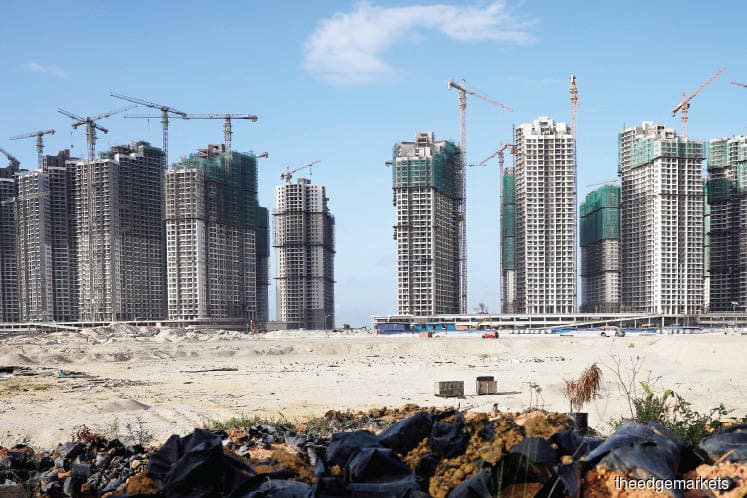
This article first appeared in The Edge Malaysia Weekly on October 14, 2019 - October 20, 2019
THE government announced two significant measures for the property sector in Budget 2020: it revised the base year for the calculation of the Real Property Gains Tax (RPGT) and reduced the high-rise property price threshold in urban areas for foreigners to RM600,000 from 2020, which could well “open the floodgates” to non-Malaysian buyers, especially in Johor.
Putrajaya did not get rid of the unpopular RPGT of 5% for properties held for more than five years by Malaysian citizens and permanent residents but it did enhance the treatment of RPGT by revising the base year for an asset acquisition to Jan 1, 2013, compared to the previous base year of Jan 1, 2000.
The revision could result in lower gains being subject to the tax as the market value of the property would most likely appreciate less in seven years (2013 to 2020) compared with 20 years (2000 to 2020).
EY Asean and Malaysia tax leader Amarjeet Singh described the measure as one that meets the people halfway. “I think it is more of the government meeting the requests of the rakyat in the middle, as it is not taking away the 5% but it has adjusted it to a closer base rate,” he tells The Edge.
Because of Budget 2019, from Jan 1 this year, Malaysians and permanent residents are subject to a 5% RPGT on the sale of all secondary properties that have been held for over five years. Previously, no tax was levied on properties held for more than five years. The government has reportedly collected RM91.87 million from the disposal of properties that are more than five years old.
From the government’s perspective, the enhancement of the RPGT treatment is not going to severely impact the government’s coffers, opines Axcelasia Inc chairman Dr Veerinderjeet Singh.
“I don’t think it is going to make a significant dent in government revenue. I think this is just the government’s reaction to various requests [from the rakyat] and it felt that it is a doable measure.
“The move, however, is intended to help the category of people who have complained that they have been holding their properties for a long time and when they want to sell, they get hit with a 5% tax on the profit from the disposal, which could be higher for properties held for a longer period of time,” he says.
On the retaining of the 5% RPGT, Veerinderjeet says there are exemptions given, such as on gains from the disposal of one private residential property by an individual once in his lifetime.
“Individuals, of course, would like to pay as little tax as possible but you have to bear in mind there are exemptions, such as the once-in-a-lifetime exemption. People who have already utilised this exemption and still have properties in hand should view it as a small contribution to the nation,” he suggests.
CBRW I WTW managing director Foo Gee Jen says the reset of the assessment year may bring some tax relief but believes it to be counter-productive. “This could be counter-productive as the revenue collected may turn out to be nominal. We hold the view that properties disposed of after five years should not be subject to RPGT as this would hurt genuine homebuyers. In addition, zerorised RPGT after five years will stimulate the secondary market and encourage reinvestment into the local property market, especially for upgraders.”
Neutral for property sector
Foo opines that it was an understandably neutral budget for the property sector with not many goodies thrown in.
“This is understandable as there is a fiscal deficit to tackle, but we were glad to see a lot of emphasis on infrastructure, in particular, the ports. The rent-to-own (RTO) financing scheme for first-time homebuyers of properties priced below RM500,000 is also commendable. All said, the government must have in place a comprehensive Tenancy Act to protect the interests of both landlords and tenants,” he says.
On the proposal to reduce the overhang of condominiums and apartments by lowering the high-rise property price threshold in urban areas for foreigners from RM1 million to RM600,000 in 2020, the National House Buyers Association (HBA) says, “The situation will be more acute in Johor as properties in Singapore are very expensive and if the threshold is reduced to only RM600,000 as proposed, this is less than S$200,000 and will definitely open the floodgates for foreigners, especially those based in Singapore, to buy properties in Johor. The locals will be drowned with the influx of these Singapore-based buyers.
“This will inadvertently push housing developers in kawasan bandar to raise the price of properties in the range of RM400,000 to RM500,000 to beyond the RM600,000 threshold to capture this land-scare (but) lucrative foreigner market.
“This will create a chain effect where developers will also push up property prices, which were previously only RM300,000 to RM400,000, to about RM500,000 to RM550,000 to take advantage of the situation,” says HBA honorary secretary-general Datuk Chang Kim Loong.
The HBA opines that the problem of unsold high-end properties should be solved by the developers themselves.
“These developers will have to think of ways to off-load such properties, such as offering discounts or other incentives to attract local buyers,” says Chang.
Save by subscribing to us for your print and/or digital copy.
P/S: The Edge is also available on Apple's AppStore and Androids' Google Play.